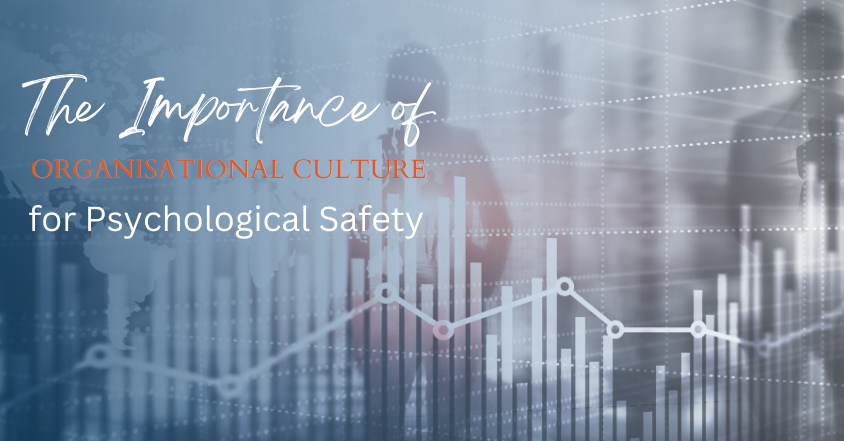
By Shaun McCarthy
Psychological safety is a growing concern for workplaces in Australia. Since 2021, various laws and codes of practice have been introduced to address the psychosocial hazards that can harm workers' mental health and well-being. These hazards include factors such as excessive work demands, poor support, low recognition, poor organisational justice, poor workplace relationships and of course bullying, harassment, and violence.
The aim of these regulations is to elevate psychological safety to the same level of importance as physical safety. However, unlike physical safety, which can be measured and managed more objectively, psychological safety is largely influenced by the personal perceptions and experiences of workers. Therefore, it is not enough to rely on formal processes and systems to ensure psychological safety. Rather, it requires a deeper change in the way the organisation operates and relates to its members – in other words, a change in organisational culture.
Organisational culture is the shared values, beliefs, and norms that shape how people think and behave in an organisation. It affects how people approach their tasks and interact with their colleagues. It also influences how people respond to risks and hazards, both physical and psychological. These shared values and norms are measured through the Organizational Culture Inventory® - the world’s most used culture survey.
Research has shown that different types of organisational culture have different impacts on workers' psychological safety and performance. Specifically, there are three main types of culture: Constructive, Passive/Defensive, and Aggressive/Defensive.
- Constructive cultures are characterised by positive values such as achievement, self-actualisation, humanistic-encouraging, and affiliative. In these cultures, workers are motivated by personal growth, excellence, cooperation, and mutual respect. They are more likely to feel psychologically safe and perform well.
- Passive/Defensive cultures are characterised by negative values such as approval, conventional, dependent, and avoidance. In these cultures, workers are driven by fear of failure, criticism, or conflict. They tend to conform to expectations, avoid responsibility, and seek approval from others. They are more likely to feel psychologically unsafe and perform poorly.
- Aggressive/Defensive cultures are characterised by negative values such as oppositional, power, competitive, and perfectionistic. In these cultures, workers are driven by ego, status, control, and dominance. They tend to challenge authority, compete with others, and impose high standards on themselves and others. They are more likely to feel psychologically unsafe and perform poorly.
As you can see, organisational culture plays a crucial role in creating a psychologically safe work environment. By fostering a Constructive culture that encourages positive thinking and behaviour among workers, organisations can reduce the impact of psychosocial hazards and enhance workers' mental health and well-being. This will also benefit the organisation's performance and reputation in the long run.
Therefore, we recommend that organisations take proactive steps to assess their current culture and identify areas for improvement. As part of our survey process the Organisational Effectiveness Inventory™ measures most of the psycho-social hazards identified in the codes of practice. We also suggest that organisations involve their workers in the process of developing and implementing strategies to promote a Constructive culture that supports psychological safety for everyone.
About the Author
Chairman Shaun McCarthy, Human Synergistics Australia & New Zealand.
Shaun established Human Synergistics in New Zealand and Australia and brings with him a wealth of knowledge, experience and anecdotes from a long and distinguished Consulting career.
If you have a question about Leadership or Culture – Shaun will have a story to illustrate an answer to it. It is this depth of experience that has led to him being invited to lecture in University programs, speak at many national conferences and being featured in the Australian Financial Review, Boss Magazine and on ABC radio. Shaun is also a member of the AHRI Advisory Research Panel.